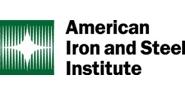Market Data

March 27, 2014
Steel Institute Applauds China Trade Dispute Settlement
Written by Brett Linton
The American Iron and Steel Institute (AISI) today lauded the decision by the World Trade Organization (WTO) to side with the U.S. on a challenge to China’s export restrictions on rare earth elements, tungsten and molybdenum. Rare earths and other products are used in smartphones, automobiles, the defense industry, and wind turbines and are mined almost exclusively in China.
Tungsten and molybdenum are used as strengthening elements in a number of steel products. The U.S., joined by Japan and the European Union, in 2012 challenged China’s export quotas after they were cut by about 40 percent. AISI has long-supported the challenge and praised the decision by the WTO dispute settlement panel, which was announced by U.S. Trade Representative Michael Froman this morning.
“This decision illustrates that China cannot continue to manipulate the global trading system by promoting its own industry to the detriment of U.S. and other global manufacturers. These metals include critical raw materials for steelmaking, and the export restrictions clearly favor Chinese producers already dealing with a massive overcapacity in steelmaking,” AISI President and CEO Thomas J. Gibson, said. “This is yet more proof that China deliberately evades its obligations as a WTO member. The Chinese government knew in 2001 when it joined the WTO that it could not impose export quotas on these elements, and it did so anyway. We are pleased to see the U.S. government working with our allies to address China’s unfair trade practices and hope that the vigorous enforcement of the global trade rules continues.” (Source: American Iron and Steel Institute)
This article can be read here.







